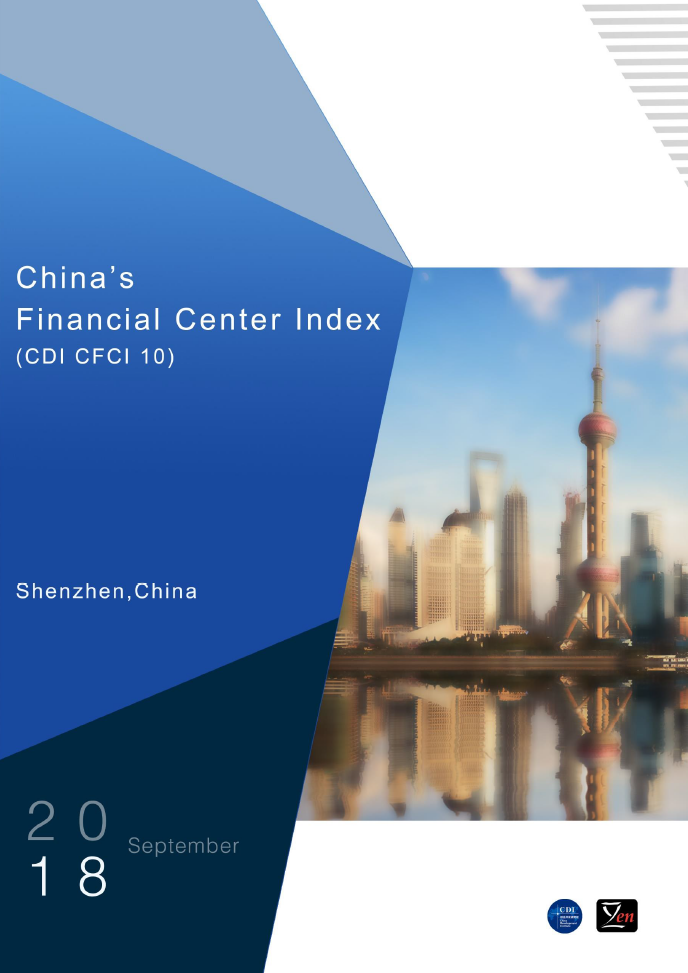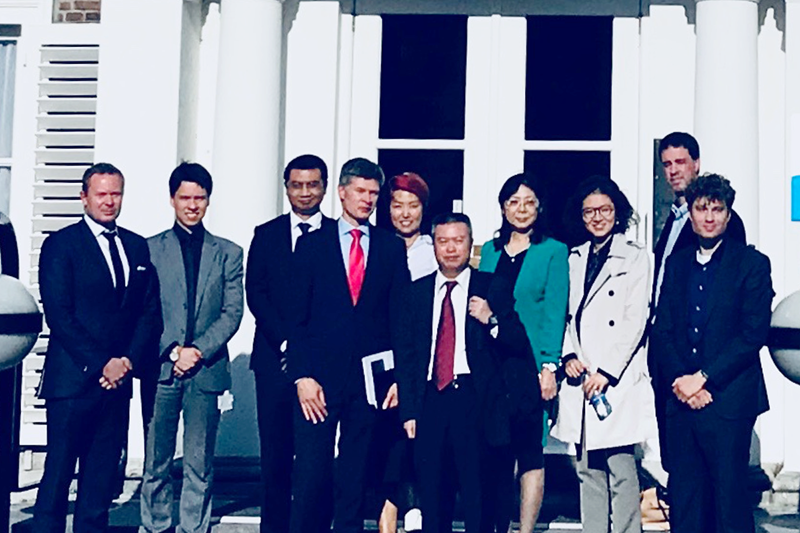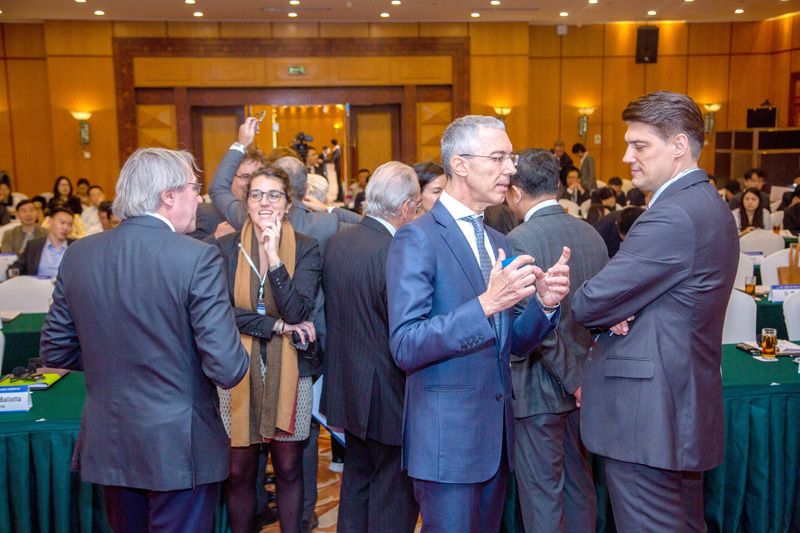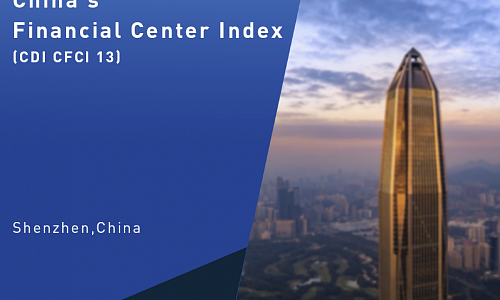Z/Yen Finance Center List Grows To 100 And Shows Asia Rising
The list of the top global financial from Z/Yen in London shows a continued shift to the Asia and some sharp movement, perhaps Brexit-related, to among some of the British off-shore centers. Released twice a year since 2007, the Global Financial Centres Index (GFCI) has since 2016 been a collaboration between Z/Yen, a London think tank, and the China Development Institute, a national think tank focused on public policy.
The Index started with a focus on four leading financial centers — London, New York, Paris and Frankfurt, recalled Michael Mainelli, executive chairman of the Z/Yen Group XX. It now includes 100 financial centers.
“When 60% of an index moves from Western centres to Asian centres in a decade, it is a time for reflection,” wrote Mainelli.”Some of the shifts have been geopolitical, ranging from the increasing economic importance of China, to global conflicts, sanctions, trade flows, financial crises, and demography. Other shifts have been deliberate and intentional policies directed at increasing the attractiveness of specific financial centres for relocation and inward investment.”
London and New York jostle for first place, as they have for year, with New York on top this time. Both fell slightly in the ratings and Hong Kong is only three points behind London and Shanghai overtook Tokyo to move into fifth place while Beijing, Zurich and Frankfurt moved into the top ten, replacing Toronto, Boston and San Francisco. It is likely that an Asian center will have the top slot very soon, Mainelli added.
Some smaller Chinese cities are rising in importance — Hangzhou was added to the list with this report. An investment banker based in New York commented “We all know about Hong Kong and Shanghai but a number of secondary Chinese centres are appearing on the radar now.”
Cities that are newcomers to the list might be surprised to learn what they can do to attract the sort of highly educated professionals that a financial center needs. Mercer, the consultancy, recently commissioned a study which surveyed 7,200 workers and 577 employers across 15 emerging megacities in seven countries.
Mercer sees some of the cities that Z/Yen identified as part of a larger trend.
“In 10 years, nearly half of all economic growth will originate from just 400 cities and the one billion residents who call them home. That’s why business leaders and city officials need to be more creative in the fight for talent in the U.S. and abroad. To develop tactics for recruiting and retention, leaders first must understand the unique needs of tomorrow’s workforce,” the company said in describing its survey results.
David Anderson, president, international at Mercer, said businesses need to understand their audience.
“It’s cliché but in business, the customer is always right. Yet when it comes to people management strategies, employers rarely listen to their workforce – and that must change. Call it Business to the Individual, or B2I – there isn’t a one-size-fits-all solution for communicating with employees. Future leaning companies will employ customizable, personalized recruiting and internal communications strategies to be effective.”
Mercer sees people remaining at the center of evolving technologies like automation, AI and robotics. But they have different expectations of the impact of technology — 24% of employers expect individuals will be replaced by technology while only 14% of workers feel that way. The company says companies must be transparent about skills which may be phased out. Several other studies have said that as some processes become automated, companies will increasingly value soft skills such as communications and empathy.
When it comes to designing urban neighborhoods that will be attractive, the study found a few surprises. Supermarkets or shopping centers placed high at 77%, followed closely by being close to a bank branch, at 72%. Really? Aren’t branches supposed to be obsolete? Convenient transportation ranked with 66% of respondents, schools for children at 59% while parks and green space were just 46% and convenient pools or gyms 37%.
The study could be useful reading for emerging financial centers.
For GFCI 24, the group researched 110 financial centers and added four new ones — Cape Town, GIFT City (Gujarat), Hangzhou and Sofia. Brexit may have been behind the moves up by Zurich, Frankfurt, Amsterdam, Vienna and Milan while off-shore British Crown dependencies Jersey and Guernsey with the Isle of Man tumbling 27 places. Bermuda on the other hand rose six places to Number 30.
The report said that Brexit continues to be a major source of uncertainty for many centers with some respondents asking if London would retain its critical mass after Brexit. Respondents in London are less optimistic than those in other centres, reflecting the uncertainty over Brexit, the report said.
”Getting very fed up with Brexit,” commended a pension fund manager in London. “We cannot continue to operate with so much uncertainty. Many of the staff here are trying to plan for their futures.”
UK and USA respondent were also concerned about restriction in movement of talented staff. Regarding infrastructure, bankers wondered how to foster a FinTech environment and also cited a need for better air travel connectivity from some centers.
“Air travel infrastructure and having direct flights into and out of centres is becoming ever more important,” said an investment professional in Seoul.
Showing significant gains were Astana, the capital of Kazakhstan, Budapest, St. Petersburg and Tallinn while Cyprus and Warsaw fell, and Sophia was a new entrant tot he index. Dubai, Abu Dhabi and Doha all rose significantly, reversing the trend from GCFI 23.
Western Europe’s leadership position has been under challenge for several years as the assessment of the top five centers in Asia/Pacific and North America have improved, overtaking western Europe.
Chinese centers continue to exhibit strength as Shanghai passes Tokyo to enter the top five and Kong Kong, Singapore and Shanghai continue to close the gap on the leaders, the report said, adding a comment from a commercial banker based in Paris: New York and London don’t seem to be doing anything to fight off the Asian challenge.”
CDI Experts Share the Experience of Shenzhen's Innovation Development with US Congressmen Assistant Delegation

On December 5, US congressmen assistant delegation visited CDI and discussed the status quo of Shenzhen's innovation development with CDI experts.
CDI experts shared the views that Shenzhen has promoted its innovation-oriented and green economy with adopting the market-driven approach. What's more, Shenzhen also adheres to the Going-out Strategy and plays a vital role in strengthening cooperations with countries along the BRI in areas of infrastructure construction, traditional industrial upgrading which facilitates the industrialization development.
At last, both sides reached consensus that people-to-people exchanges will reduce the misunderstanding and contribute to the future cooperation.
CDI and CII to Promote China-India Healthcare Cooperation

In New Dehli, CDI and Confederation of Indian Industry (CII) co-organized a roundtable discussion on strengthening China-India cooperation in the healthcare sector on November 19. The participants ranging from policy makers, entrepreneurs to experts from China and India agreed that there is great potential for bilateral trade and investment in the healthcare sector and discussed how to facilitate the cooperation in the pharmaceuticals from the perspective of policy coordination. During the meeting, CDI and CII also signed a MOU according to which the two parties will further their cooperation in the joint research and events. The CDI delegation also participated in the 15th National Pharmaceutical Conclave 2018 and the 2nd National Biotechnology Conclave 2018.
In addition, the CDI delegation paid a visit to Sonata and Infosys in Bangalore to learn about India’s information and technology industry on November 23.
https://en.cdi.org.cn/component/k2/itemlist/user/352-superuser?start=300#sigProId86960e0156
China-Pacific Islands Maritime Economic Cooperation
 On November 9, Ms. Emma Mcwhinnie Hodder, Deputy Consul-General of Consulate General of New Zealand in Guangzhou visited CDI. Dr. Hu Zhenyu, Director of Department of Sustainable Development and Blue Economy, greeted the delegation.The dialogue focused on CDI’s research on pacific island economic, as well as challenges and opportunities in terms of maritime economic cooperation.
On November 9, Ms. Emma Mcwhinnie Hodder, Deputy Consul-General of Consulate General of New Zealand in Guangzhou visited CDI. Dr. Hu Zhenyu, Director of Department of Sustainable Development and Blue Economy, greeted the delegation.The dialogue focused on CDI’s research on pacific island economic, as well as challenges and opportunities in terms of maritime economic cooperation.
DPRK Economic and Technological Cooperation Association Visits CDI
 On November 5, a delegation of DPRK Economic and Technological Cooperation Association visited CDI and discussed the development of Shenzhen Special Economic Zone and the SEZ planning with CDI experts. In the meeting, the delegation noted that the SEZ mode is a good choice as the investment environment of DPRK has been improved.
On November 5, a delegation of DPRK Economic and Technological Cooperation Association visited CDI and discussed the development of Shenzhen Special Economic Zone and the SEZ planning with CDI experts. In the meeting, the delegation noted that the SEZ mode is a good choice as the investment environment of DPRK has been improved.
CDI Delegates attended New Silk Roads World Forum 2018 in Australia
 From October 15-16, 2018, the New Silk Roads World Forum with the theme of “Forging A New Era of Connectivity” was held at Monash University in Australia, where CDI experts discussed the Belt and Road Initiative (BRI)with experts from different countries.
From October 15-16, 2018, the New Silk Roads World Forum with the theme of “Forging A New Era of Connectivity” was held at Monash University in Australia, where CDI experts discussed the Belt and Road Initiative (BRI)with experts from different countries.
Experts present shared the view that the BRI has played a positive role in improving the infrastructure connectivity and promoting the economic development along the involving countries. During the meeting, CDI experts also expressed some ideas on the financing mechanism, multilateral cooperation and potential risks of the BRI. All experts reached the consensus that properly addressing the above issues will contribute to the sustainable development of the BRI.
China Financial Centers Index (CFCI 10)
CDI Exchanges Ideas on BRI and Guangdong-Hong Kong-Macau Greater Bay Area with Dutch and Danish Experts
In Amsterdam, Rotterdam, Hague, and Copenhagen from September 16 to 23, CDI had meetings with experts from The Clingendael Institute, The Hague Centre for Strategic Studies, International New Town Institute, Euronext, and Danish Institute for International Studies on which both sides discussed the Belt and Road Initiative (BRI), the Guangdong-Hong Kong-Macau Greater Bay Area, Chinese financial innovation.
In meetings with The Clingendael Institute and The Hague Centre for Strategic Studies respectively, CDI experts discussed debt, investment and risk management of BRI with their European counterparts. CDI experts shed some light on the Guangdong-Hong Kong-Macau Greater Bay Area in their discussion with experts from Danish Institute for International Studies. What’s more, CDI visited International New Town Institute and held a roundtable discussion on urbanization andmetropolis management. CDI and Euronext also discussed how to facilitate capital connectivity between China and Europe.
https://en.cdi.org.cn/component/k2/itemlist/user/352-superuser?start=300#sigProIdbcf2531d7d
Belt and Road Summit: From Vision to Action
Information
 At present, global economy is facing with great uncertainty and challenge while the intense trade protectionism and friction has seriously affected the development of international economic and trade relations. With the advance of the Belt and Road Initiative, Chinese investment experiences challenges while promoting European connectivity, economic growth and China-EU cooperation. The Summit focuses on how to promote economic connection and cooperation among Eurasian countries under the framework of the Belt and Road Initiative in current world situation.
At present, global economy is facing with great uncertainty and challenge while the intense trade protectionism and friction has seriously affected the development of international economic and trade relations. With the advance of the Belt and Road Initiative, Chinese investment experiences challenges while promoting European connectivity, economic growth and China-EU cooperation. The Summit focuses on how to promote economic connection and cooperation among Eurasian countries under the framework of the Belt and Road Initiative in current world situation.
Date: November 22, 2018
Venue: Shenzhen Room, Wuzhou Guest House, Shenzhen
Host: China Development Institute and The European House – Ambrosetti
Theme: Belt and Road Initiative: From Vision to Action
China-U.S. Economic Relations: A Mixture of Challenges and Cooperation
Information
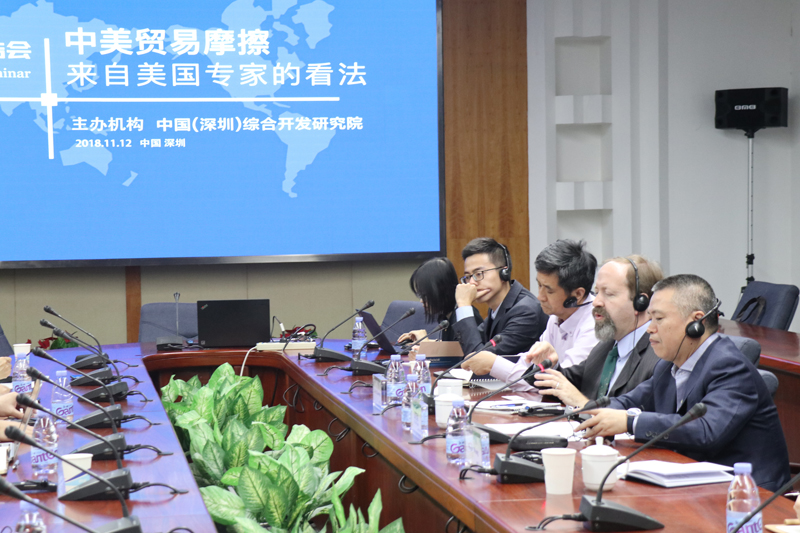
Date: November 12, 2018
Venue: Room 101, CDI Mansion, Shenzhen
Host: CDI
Theme: China-U.S. Economic Relations: A Mixture of Challenges and Cooperation



